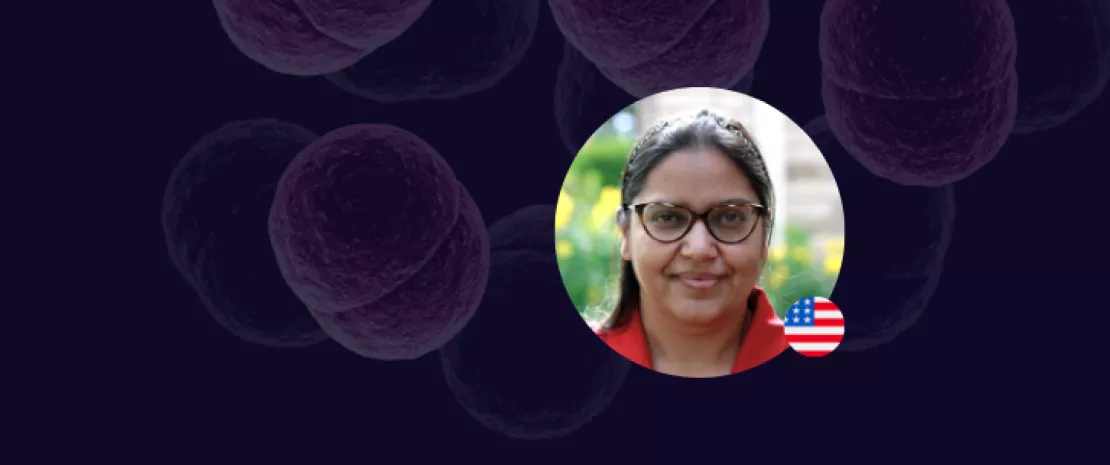Dr. Singh (USA winner 2017): Microbiota & polyphenols
To celebrate #WorldMicrobiomeDay, the Biocodex Microbiota Institute is handing the floor to national grant winners.
Lay public section
Find here your dedicated section
Sources
This article is based on scientific information
Sections

About this article
Dr. Rashim Singh
Research Asssistant Professor, Pharmaceutics, College of Pharmacy, University of Houston; President, Sanarentero LLC. She is a preclinical DMPK and translational scientist and Entrepreneur who studies how the manipulation of gut microbiome metabolic functions can help prevent or alleviate drug and dietayy carcinogen induced GI inflammation and cancer
What has the national grant allowed to discover in your microbiota research area?
National Grant allowed me to explore how recycling of polyphenols can modulate the structure and function of gut microbiota, which not only impact the systemic bioavailability of these compounds but also generate microbial metabolites beneficial for humans health and alleviation of various gut diseases/disorders.
What are the consequences for the patient?
Our research indicates the mechanism of benefits of polyphenol-rich diet despite their low systemic bioavailability lies in their bidirectional interactions with gut microbiota which is facilitated by their hepato-enteric and entero-enteric recycling phenomenon. It supports the consumption of flavonoids or polyphenol rich foods and dietary supplement not just for their antioxidant effects as has been marketed but also for their positive impact on maintaining healthy gut microbiota to build resilience against toxins.
In your point of view, what is the biggest breakthrough related to microbiota these last years?
To be able to identify specific bacteria related to healthy and disease states and relevant microbial metabolites as systemic or fecal biomarkers will allow development of several microbiome-based therapeutics products for the treatment and prevention of GI and metabolic diseases and immune disorders.
Do you think there is a growing interest on microbiota recently?
Definitely, the level of translational research as well awareness and use of products modulating microbiota among populace is growing rapidly and hope to grow further as more successful Live Biotherapeutic Products enters clinical use.
Do you have a tip for taking care of our microbiota?
As much as possible, eat freshly prepared meal with good serving of vegetables and fruits, keep healthy bowel habits and sleep habits, and involve in destressing activities on regular basis.
Do you have an anecdote, or a surprising fact/story to share on your research?
For a long time, polyphenol research has been confounding due to their poor bioavaibility (<5%), however as role of microbiota in maintaining health is strengthening, benefits of polyphenols despite low systemic exposure is starting to make sense, due to their extensive recycling resulting in repeated interactions with microbiota
What is for you the most fascinating bacteria?
Lactobacillus, a beneficial microbe fascinates me as many people in the world including many of my family members are lactose intolerant possibly because their gut environment does not support the colonization of Lactobacillus. So, does the daily intake of probiotic supplement containing Lactobacillus will solve the issue or something more is needed?
Do you have an inspirational person in mind? (in the field of research? / Medical? / in general?)
This list is long as the field is filled with some really ingenious researchers. But I am a big fan of Dr. Emeran Meyer and regularly read "Gut Health Insights" which he tries to educate everyone in simple language on how to maintain a good gut microbiome and its relationship to stress and immune system. I think community at large needs to learn how to maintain their own health and prevent diseases with maintenance of healthy gut microbiome.



